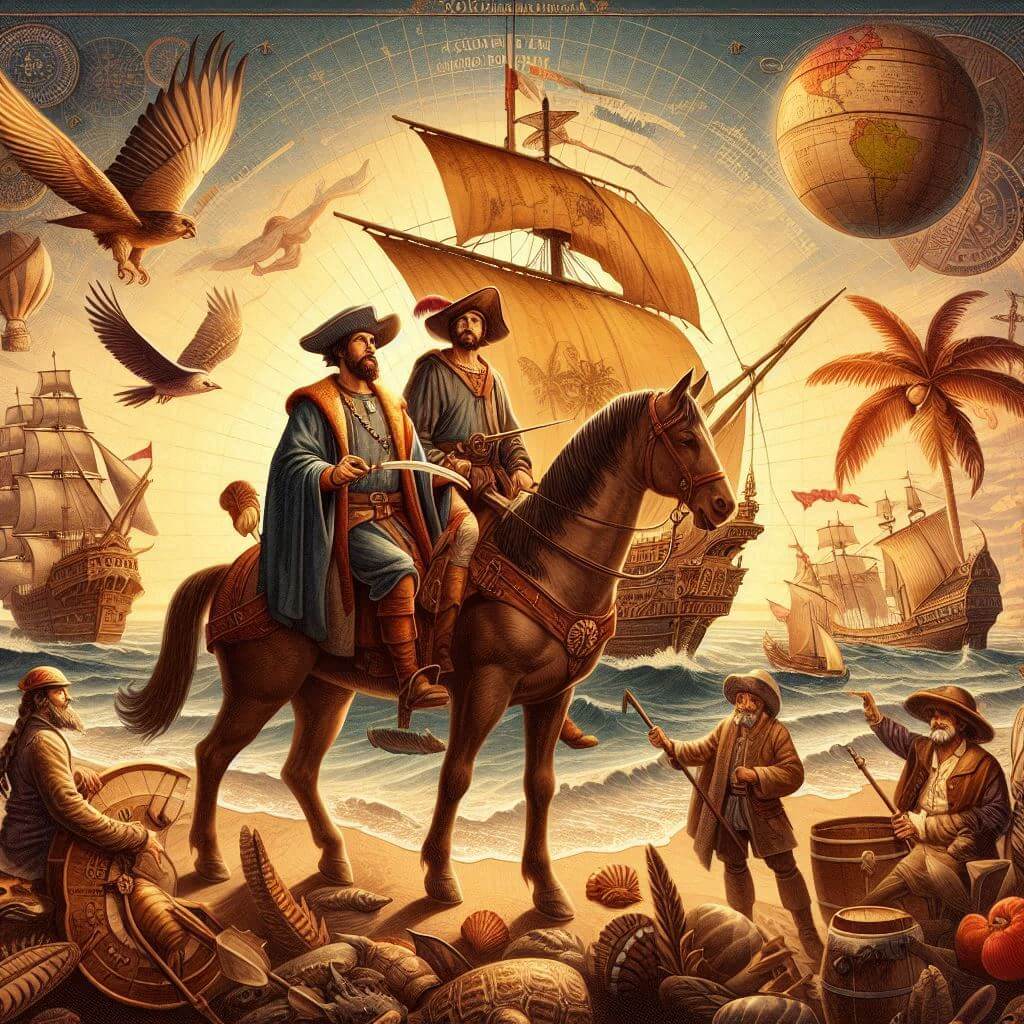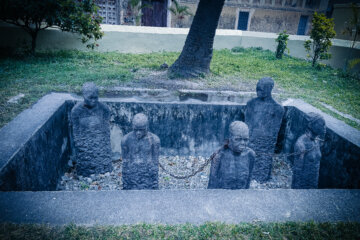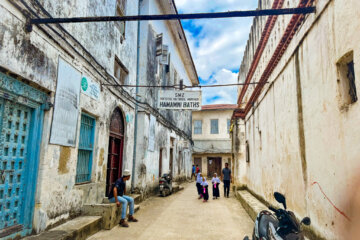The Evolution of Travel: Cultural, Psychological, and Sociological Perspectives
Travel, a term that today evokes images of adventure, exploration, and leisure, originally carried a much different meaning. Rooted in hardship and labor, the Middle English word “travailen“ means “to toil” or “to labor.” For early travelers, journeys were often perilous and exhausting, far from the leisurely escapes many associate with travel today. As societies advanced and transportation improved, the concept of travel evolved, gaining cultural and intellectual significance in different parts of the world. Additionally, the word “travel” and its counterparts in various languages reveal fascinating insights into how different cultures perceive movement and exploration.
Beyond its physical challenges, travel has always had profound psychological and sociological implications. Understanding how people of the past thought about travel offers a unique window into their worldviews, desires, and anxieties.
The Origins of Travel: From Toil to Exploration
Historically, the word “travel” comes from the Latin word “tripalium,” which was a three-pronged instrument of torture. This early association with suffering reflects the challenges that early travelers faced when traversing unknown and dangerous terrains. Whether for trade, pilgrimage, or exploration, travel was often a grueling endeavor. It was not about enjoyment; it was about survival, discovery, and, in some cases, conquest(Baeza & Giraldo, 2012).

However, with the advent of the Age of Exploration, travel began to take on new meanings. Explorers like Christopher Columbus and Marco Polo set out to discover new lands, seeking knowledge and wealth. This period marked a shift from viewing travel as mere toil to seeing it as an opportunity for adventure and learning. In Europe during the Renaissance, travel became synonymous with intellectual growth, particularly with the rise of the Grand Tour, a tradition in which young European aristocrats traveled across the continent to enrich themselves culturally and intellectually (Carey, 2011).
Psychological Perspectives on Travel
From a psychological standpoint, travel has historically been both a source of anxiety and an opportunity for personal transformation. In ancient and medieval times, the psychological experience of travel was closely tied to fear—fear of the unknown, danger, and dislocation. Early travelers had to grapple with unfamiliar environments, potential hostility from foreign cultures, and the lack of security. These fears were often magnified by religious and superstitious beliefs that saw foreign lands as mysterious and sometimes threatening places.
At the same time, travel was viewed as a path to enlightenment and self-discovery. Pilgrimages, such as those undertaken in medieval Europe or ancient India, were seen as opportunities for spiritual growth. Pilgrims believed that the hardships they endured on their journeys would lead to spiritual rewards, reinforcing the psychological association between suffering and redemption. The psychological resilience required for such travel was immense; travelers were often motivated by deep religious convictions that helped them cope with the physical and emotional challenges of the road.
As societies evolved and travel became safer, the psychological focus shifted from fear to curiosity and personal growth. The Grand Tour, for example, was seen as an essential part of a young aristocrat’s education, offering opportunities for self-discovery, exposure to new cultures, and intellectual development. This shift reflected a growing belief in the transformative power of travel, where encountering new places and ideas could change one’s perspective on the world and oneself (Carey, 2011).
Related: Unleash Vibrant Serenity: The Transformative Power of Travel
Sociological Perspectives on Travel
Sociologically, travel has always been tied to broader societal structures, such as trade, migration, and power dynamics. In many ancient societies, travel was a necessary part of life, particularly for merchants, explorers, and religious figures. However, travel also reinforced social hierarchies. Only the wealthy or those with specific purposes—such as religious pilgrims or traders—could afford the time and resources required to travel long distances. This created a clear distinction between those who traveled and those who remained sedentary, reinforcing class divisions.
During the Age of Exploration, travel became a means of asserting dominance and power. European explorers, driven by a desire for wealth and territorial expansion, ventured into unknown lands, often subjugating indigenous populations in the process. Travel, in this sense, was not just about exploration but also about conquest and control, reflecting the imperialistic ambitions of the time. This era highlighted the sociological power dynamics inherent in travel, where those who could traverse the globe often wielded significant influence over those who could not (El-Shafie, 2019).
On the other hand, travel also played a crucial role in fostering cross-cultural exchange and understanding. The Grand Tour, for instance, exposed young European aristocrats to different cultures, art, and ideas, promoting intellectual exchange and a broader sense of European identity. This sociological function of travel as a means of cultural transmission continued to evolve, particularly in the modern era, where travel became more accessible and widespread.
In nomadic societies, such as the Bedouins and Maasai, travel is deeply embedded in the culture. Movement is not a temporary activity but a way of life. For these groups, travel is central to their identity, social organization, and survival. The nomadic lifestyle challenges the conventional sociological notion of travel as a distinct activity, instead presenting it as an integral part of daily life (El-Shafie, 2019).
Related: The Maasai: Guardians of Tradition in Tanzania and Kenya
Cultural Variations and Linguistic Reflections of Travel
While travel is a universal activity, its meaning varies significantly across cultures, shaped by history, geography, and societal values. The words used for “travel” in different languages reflect not only the act of moving but the deeper spiritual, intellectual, or survival-based implications. By examining travel through these cultural and linguistic lenses, we gain insight into how different societies view journeys and the significance they place on them.
Japan
In Japan, travel is influenced by the concepts of “tabi” (旅) and “ryokō” (旅行). Tabi refers to a journey, often with spiritual significance, where pilgrims travel to sacred sites like the Shikoku Pilgrimage, visiting 88 temples in search of spiritual purification. Meanwhile, ryokō encompasses modern forms of travel, focusing on movement but still tied to reflection, mindfulness, and a connection with nature. Even today, Japanese travelers are influenced by a cultural emphasis on contemplation and respect for the natural world, blending traditional pilgrimages with contemporary experiences (Williams, 2018).
An important aspect of Japanese travel culture is Omiyage (お土産), or the tradition of bringing souvenirs from one’s journey to share with family, friends, or colleagues. Omiyage is more than just a keepsake; it’s a social obligation. The gift is expected to be representative of the region visited, such as local food or crafted items, and reflects the traveler’s connection to the place. This cultural practice underscores the importance of travel as a shared experience, where the journey is also about the connections and goodwill built through giving.
Moreover, travel in Japan is heavily concentrated around specific holidays, particularly Golden Week, which typically takes place at the end of April and the beginning of May. During Golden Week, many Japanese workers take vacations, leading to a surge in domestic and international travel. As a result, prices for travel and accommodation skyrocket during this period due to increased demand. Japanese vacationers often use this time to visit popular destinations within the country, or travel abroad, knowing that prices will be higher but viewing it as a rare opportunity to take extended time off in a country where vacations are relatively short in the work culture.
India
In India, travel has long been associated with spirituality and religious pilgrimage. Millions of Indians undertake “yatras” (यात्रा) to holy sites like Varanasi, Haridwar, and the Amarnath Cave, seeking spiritual enlightenment and personal transformation. The Hindi word yātrā reflects the cultural significance of travel as both a spiritual act and a path to self-discovery. In Indian culture, travel is seen as a form of religious devotion and personal growth, with the journey itself often being just as important as the destination (Williams, 2018).
Western Europe
In Western Europe, travel has historically been tied to education and cultural enrichment. The Grand Tour, popular in the 17th and 18th centuries, allowed young aristocrats to travel to Italy, France, and Greece to gain exposure to classical art, architecture, and intellectual growth. The French word “voyage“ reflects the view of travel as a purposeful, enriching experience. Even today, this tradition continues through study abroad programs and gap years, where travel is associated with intellectual and cultural growth (Carey, 2011).
United States
In the United States, travel is often seen as an expression of personal freedom and adventure. The American road trip, exemplified by iconic routes like Route 66, represents a celebration of individualism and exploration. The phrase “road trip“ evokes open roads, self-discovery, and the freedom to explore both the country’s vast landscapes and oneself. This tradition highlights travel as a reflection of American ideals of liberty and self-reliance, where the journey is as much about personal exploration as physical movement (Murray, 2021).
Additionally, in American culture, there is a widespread notion of travel as an escape for relaxation, particularly through beach vacations. Unlike other cultural traditions where travel might involve spiritual or intellectual growth, many Americans view vacations as an opportunity to “do nothing” and unwind. Beach destinations, such as Hawaii, Florida, and California, are often associated with leisure and relaxation, where the goal is to disconnect from daily stress. This form of travel is centered around the idea of recuperation and enjoyment, with activities like sunbathing, swimming, and simply taking in the scenery. The notion of the “beach vacation” as a form of travel is an important part of American travel culture, emphasizing the value placed on rest and relaxation as key components of a fulfilling life.
Germanic Languages
In German-speaking cultures, travel is romanticized as a journey of self-discovery and connection with nature. The German word “reisen“ refers to the act of traveling, while “Wanderlust“ expresses a deep longing for exploration and adventure. This reflects the cultural belief that travel is an opportunity for personal transformation, both physically and intellectually, through the experience of new landscapes and challenges (Carey, 2011).
Slavic Languages
In Russian and Polish, words for travel emphasize purposeful movement and overcoming challenges. The Russian word “путешествие“ (puteshestvie) conveys both the act of traveling and the obstacles one must overcome along the way. These languages reflect the cultural belief that travel is an adventure requiring perseverance and resilience, where the journey itself is a meaningful experience.
Arabic: Travel as a Means of Survival
In Arabic, the word “safar” (سفر) refers to travel, often associated with survival and exploration in harsh environments like deserts. Historically, travel for some Arab groups, such as the Bedouins, was crucial for survival, trade, and cultural continuity. The Bedouins, a nomadic group within the Arab world, have long practiced a lifestyle based on constant movement to find water, pasture, and trade opportunities. For Bedouins, safar captures both the necessity of travel and its spiritual dimensions, such as religious pilgrimages like the Hajj. However, it’s important to note that nomadism is not representative of the broader Arab population today, as most Arabs live in urban or settled communities, particularly in regions with growing economies (El-Shafie, 2019).
Swahili: Travel for Exploration and Commerce
In Swahili, the word “kusafiri“ emphasizes both the necessity of travel for survival and its role in exploration. Historically, Swahili-speaking regions were part of long-distance trade routes across the Indian Ocean, making travel essential for commerce. For nomadic groups like the Maasai in East Africa, who speak Swahili alongside their native Maa language, travel is crucial for following seasonal patterns to ensure the survival of their livestock. While the Maasai maintain a semi-nomadic way of life, many other Swahili-speaking populations are more settled, with travel primarily associated with trade and exploration, rather than constant migration.
Conclusion
The meaning of travel has transformed over centuries, evolving from its origins in toil and hardship to the multifaceted concept it is today. Despite these changes, travel remains a universal experience that connects cultures across the globe. Whether undertaken for spiritual growth, intellectual enrichment, relaxation, or personal exploration, travel continues to shape our understanding of the world and our place in it. Across different languages and societies, the act of traveling is deeply tied to cultural values, reflecting the diverse ways in which humans engage with their environment and the unknown.
Do you have unique traditions or customs related to travel? Whether it’s a special time of year you travel, a cultural practice during your journey, or something meaningful you bring back home, we’d love to hear about it! Share your travel traditions and experiences in the comment section below.
References
- Baeza, R., & Giraldo, M. (2012). History through Travel and Travelers. Culture & History Digital Journal, 1(2), 100.
- Carey, D. (2011). Travellers and Cosmographers: Studies in the History of Early Modern Travel and Ethnography, by Joan-Pau Rubiés. Studies in Travel Writing, 15, 111-113.
- Williams, M. (2018). The Inner Lives of Early Modern Travel. The Historical Journal, 62, 349-373.
- El-Shafie, M. (2019). Nomadic Culture and Travel: Bedouins and Maasai. Culture & History Digital Journal.




0 Comments